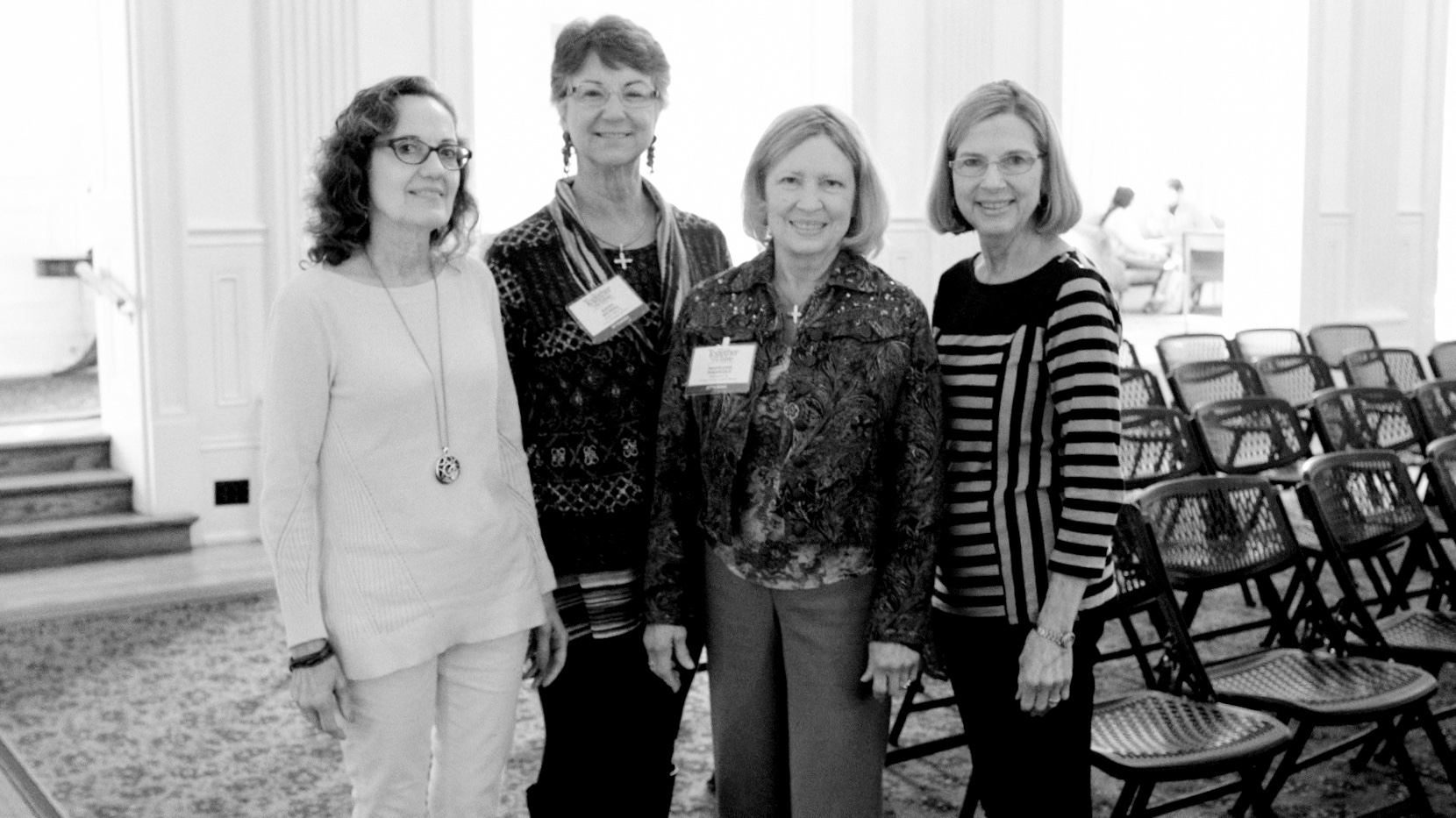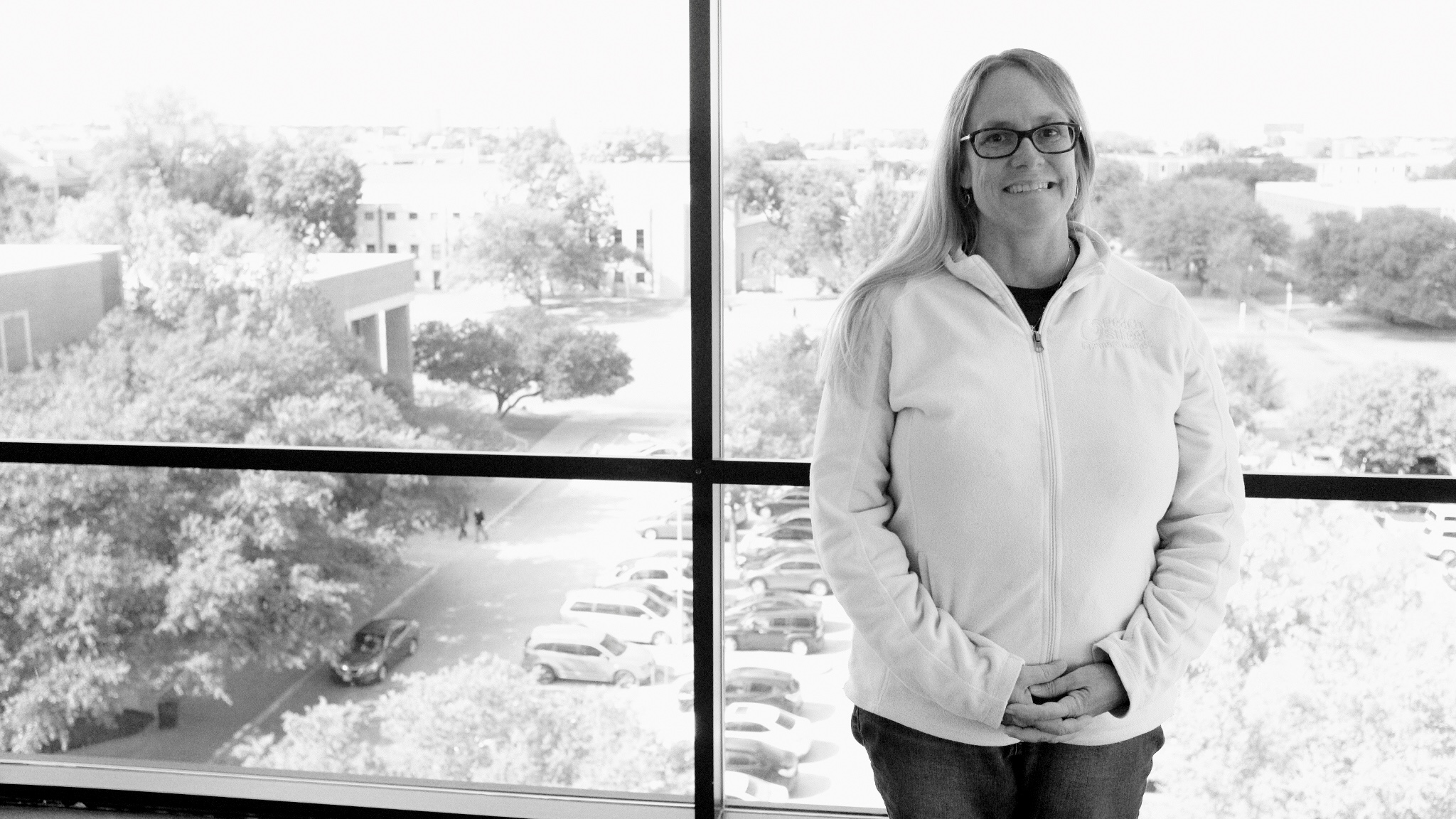

By Eric Moen
EHF Congregational Engagement Officer
The Texas Hunger Initiative (THI) recently hosted its Together at the Table Hunger and Poverty Summit in Waco. I attended this informative event with five others from Trinity, Marble Falls and Holy Comforter, Angleton.
THI conducts university-based research to determine what food assistance programs work and provides support needed to put those programs into action in communities. With a focus on bringing to the table leaders from big business, nonprofits, and faith communities, the summit’s workshops and speakers were informative, inspiring and hopeful.
Both Trinity and Holy Comforter have impactful community ministries that are centered on hunger. Trinity efforts began after meeting with THI several years ago. EHF has featured stories about Trinity’s End Hunger in Burnet County Hunger Alliance work and Holy Comforter’s Peach Street Farmer’s Market. Both congregations have benefited from the EHF/Kaleidoscope Institute’s Holy Currencies Incubator in refining their efforts.
We walked away from the two-day summit full and energized to tackle important hunger issues. I sat down with the five attendees to learn more about their work and how other Episcopal congregations can get involved. We posed two important questions to each of the attendees.


1. What’s inspired you this week?
Madeline Manigold – Trinity Episcopal Church, Mable Falls (Burnet Co. Hunger Alliance)
For me it was the notion of transformation. Transforming us from providing meals to taking that next step of really providing the opportunity to end hunger by providing jobs and by providing the kind of case management that will overcome whatever barriers there are. That gets at the cause of the hunger, transforming what we’re doing now into the kind of work that will actually end hunger…to shorten the line, and ultimately, eliminate the line of those who are hungry. I believe we can do it. I heard evidence that it can be done, and I think that’s where we need to go.
Pam Rodgers – Trinity Episcopal Church, Mable Falls (Burnet County Hunger Alliance)
What was unexpected and inspiring was to know that it’s okay to fail. Maybe that’s not the right word to use, but we at the Burnet County Hunger Alliance have tried different things, and it’s taken us a while to learn what works. And then also part of that is also knowing what we need to go back and do better, or redo, or do again. One of the most important things that we knew, but we haven’t gotten there, was to listen and we need to ask neighborhoods what they need. We have found a neighborhood that we are getting to know, and we are on our road to building trust there. I think we’re almost to the point that we can ask them those hard questions about what they need.
Bernadette Ellis – Trinity Episcopal Church, Marble Falls (Burnet County Hunger Alliance)
We look at healthcare by looking at the whole person. And to treat poverty and hunger you must look at the whole person too. I think that’s something we heard over and over. And it’s not about the numbers as in the neighborhood Pam talked about. So, if it’s five or 10 families that are being helped, that’s okay. It’s not about the numbers, it’s each individual person.
Kathy Nicholl – Trinity Episcopal Church, Marble Falls (Burnet County Hunger Alliance)
I’m excited about coming back this year and being recharged and having resources to take home to other people. I now have resources I can take to the food bank. I found a resource to take to my person in Austin at CapCOG (Capital Area Council of Governments). We talked about some funding opportunities, and we’ve located the nonprofit that we think is the best fit to do some of the case management. We want to better support our partners.
Ellen Eby – Holy Comforter Episcopal Church, Angleton (Peach Street Farmers Market)
Jimmy Dorrell’s (Mission Waco) conversation was really inspiring because it was a reminder of the bigger picture, and that you have to put action to your words and action to your thoughts. It’s not enough to say, ‘We need to be sensitive.’ It’s not enough, and in fact it’s probably wrong to just give money, as that isn’t honoring someone’s dignity. For me, I can’t leave after this week without looking at hunger and poverty through a different lens. I have to consider some of the ways that we traditionally do things and realize that they’re not really getting at the root causes, and so consequently not really getting to solutions. I think we can tweak what we are doing and make it more effective.
2. What words of encouragement do you have for congregations interested in engaging their community?
Madeline
I have a phrase from my state government days that when it seems so large and overwhelming, your plate is full, and you don’t know where to start — the most important thing is to start eating. (laughter from all) Take some small bites, it’s just a little bit. Because again, it’s not the numbers. It’s not the large overwhelming; it’s the little bit.
And then the other thing that I would say I’m taking away from this conference is the need to treat people with respect and dignity. That message was in nearly all our sessions, and the people here at the hunger initiative modeled that in the way they treated us in respecting our needs. That’s a very important takeaway that I think I would pass on to people who are trying to get something started.
Kathy
You don’t have to do it all by yourself. Look around and see what is going on and see where you can help. Listen to what the needs are, and it may not be that you need to start something yourself. It may be that you need to support what’s already there and make some connections. I think in our communities we have everything we need. Somebody once told me, ‘what your church needs is already in your pews, you just need to be able to get it going.’ That’s kind of the way it is in our community. We have what we need, we just need to activate it.
Pam
I think you need to listen to the Holy Spirit and I think you need to let the Holy Spirit move you. We learned very quickly you have to check your egos at the door. And like Kathy said, you cannot do it alone. So ask for help. Look around and ask who’s got what skill. It’s kind of like making Stone Soup, the old story, everybody brings something to the pot. And just start that way.
Bernadette
It’s all about collaboration. Look at what the other churches in the community are doing. Work together with everybody else in the community.
Ellen
Do it. Persevere. Figure it out. I think a lot of what keeps us from doing anything is fear. If you try to be too heady and try to anticipate all the problems ahead of time, you’re never going to jump out and do it. Just do it. For us, at some point beginning the farmers market we asked ourselves, “When we’re going to open up?” And, we looked at the calendar and noticed national Farmers Market week. “How about August 12th?” That’s it. Ready or not here we come.
EHF offers the Bridges Out of Poverty workshop regionally throughout the diocese for congregations interested in learning more about poverty. For more information, please email EHF’s Congregational Engagement team.
Texas Hunger Initiative will host its next Hunger and Poverty Summit October 2-4, 2019 in Waco. If you are interested in attending, please let us know. EHF can provide financial assistance to attend conferences and trainings like this one. You can request support here.